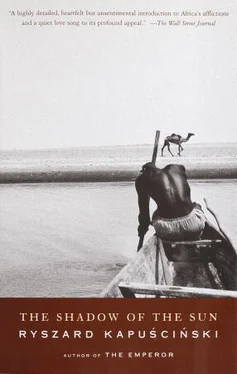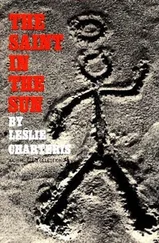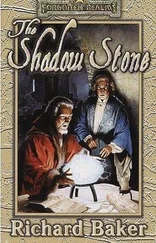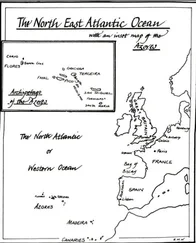And that’s exactly what was happening now. At the bottom of the hole, half immersed in water, stood a huge truck loaded with sacks of peanuts. A bunch of half-naked boys were unloading it, clambering up to street level with the sacks. Another group was fastening ropes to the truck, to help haul it out of the pit. Still others were sloshing about in the water, trying to lay planks and beams under wheels. Those who had no more strength would climb up to rest awhile. Rows of women were positioned around the brim, selling hot food — rice with a spicy sauce, cassava pancakes, baked yams, peanut soup. Others were hawking homemade lemonade, rum, banana beer. Some boys were selling cigarettes and chewing gum. In the end, when everything was ready and the peanuts had been unloaded, the teams set about extricating the truck. Some of the boys, cheered on with shouts, pulled on the ropes; others pushed with their shoulders against the vehicle’s sides. The truck resisted, went in reverse, practically stood on end. But finally, as a result of all these joint efforts, it reared up and onto the asphalt. The onlookers applauded and slapped one another on the back; the neighborhood children danced and clapped their hands.
Barely a moment had passed, and the next car in line was already swimming at the bottom of the abysmal pit. I noticed that an entirely different group of people set about pulling it out. They had their own ropes, chains, planks, and shovels. Those who had been working on the previous vehicle had already dispersed somewhere. The work was immensely difficult and laborious — this was a particularly heavy machine, an enormous Bedford. They had to haul it out by degrees, little by little. At the conclusion of each phase, work would cease and a long discussion would ensue about which methods of towing might now prove to be the most effective. The Bedford kept slipping, its engine roared as if it were demented, its platform tilted dangerously to one side.
With each vehicle the hole grew deeper and deeper. Its bottom was an increasingly slimy, sticky goo, in which tires spun in place, splashing and spraying everyone with lumps of mud and streams of gravel. I estimated that we had a two to three-day wait before our turn in the pit finally came. I wondered, how much would the rescuers charge to pull us out? But there was a more pressing question: how do we get out of this trap? I was no longer thinking about the market in Onitsha, about its colorful commotion, its fairground literature. I wanted to get out of here — I had to go back. But first I went to explore briefly the area around this catastrophically potholed, jammed Oguta Road. To see what it looks like. To gather some intelligence. Listen to what’s being said.
I was immediately struck by how the area around the hole had become the epicenter of local life, how it drew people, engaged them, spurred them to initiative and action. In the normally sleepy, lifeless backwater on the outskirts of town, where the unemployed slumber in the streets and packs of homeless malarial dogs roam, there arose, suddenly and spontaneously, thanks solely to that unfortunate hole, a dynamic, humming, bustling neighborhood. The hole created work for the unemployed, who formed teams of rescuers and made money hauling cars out of the pit. It brought new customers for the women operating the portable sidewalk eateries. Because of the attendant traffic jam, shoppers appeared perforce in the previously empty local shops — the passengers and drivers of cars waiting to get through. Hawkers of cigarettes and cold drinks found buyers for their wares.
More: I noticed fresh, clumsy, hand-painted signs on the surrounding houses: “Hotel,” aimed at those who were forced to spend the night waiting for their turn in the hole. Local car-repair shops revived as drivers, taking advantage of the enforced stop, used the time to repair damages, pump up tires, recharge batteries. Tailors and shoemakers had more work, barbers appeared; I noticed witch doctors making their rounds, offering herbs, snake skins, and rooster feathers, ready to cure anyone in an instant. In Africa, all these professions are performed by people in motion, wandering about, searching out clients, and if an opportunity like the hole in Onitsha arises, they quickly converge there in large numbers. Social life, too, was reinvigorated: the area around the hole became a place for meetings, conversation, and discussion, and, for the children, a playground.
The curse of drivers traveling to Onitsha became the salvation of the residents of Oguta Road, and of this entire neighborhood. It was further proof that every evil thing has its defenders, because everywhere there are those whom evil sustains, for whom it is an opportunity, life itself.
For a long time, people did not allow this hole to be repaired. I know this because when years later I was telling someone in Lagos with great emotion about my adventure in Onitsha, he replied with an absolutely indifferent tone of voice: “Onitsha? It’s always like that in Onitsha.”
Asmara, five o’clock in the morning. Dark and cool. Suddenly two sounds soar simultaneously over the city: the powerful, low chiming of the bell from the cathedral on Via Independencia and the drawn-out, lilting calls of the muezzin from the mosque nearby. For several minutes these two sounds fill the air, combine and reinforce each other, creating a harmonious and triumphal ecumenical duet that shatters the quiet of the sleepy streets and awakens their inhabitants. The voice of the bell, rising and falling, is like a sonorous accompaniment, a lofty and bracing allegro punctuating the fervent Koranic suras with which the muezzin summons the faithful to the first prayer of the day, called salad as-subh .
Deafened by this morning music, I walk cold and hungry through the empty streets to the bus station: I am planning to go to Massawa today. Even on the large maps of Africa, the distance between Asmara and Massawa is barely the width of a nail, and in reality it is not great, only 110 kilometers, but it takes a bus five hours to traverse it, descending from an altitude of 2,500 meters down to sea level — the Red Sea, along which Massawa lies.
Asmara and Massawa are the principal cities of Eritrea, the youngest African state, with a population of only three million. It had never in the past been an independent state, being first a colony of Turkey, then of Egypt, and in the twentieth century of Italy, England, and Ethiopia successively. In 1962, the latter, having already forcibly occupied Eritrea for ten years, declared it an Ethiopian province, to which the Eritreans responded with an anti-Ethiopian war of liberation, the longest-running war (thirty years) in the history of the continent. When Haile Selassie ruled in Addis Ababa, the Americans helped him fight the Eritreans, and when Mengistu overthrew the emperor and seized power for himself, the Russians did. You can see the relics of this history in the great park in Asmara, where the war museum is situated. Its charming and hospitable young director, Aforki Arefaine, is a poet and guitarist, and a former guerrilla. He first shows me American mortars and guns, and then a collection of Soviet tommy guns, mines, rocket launchers, and MIGs. “This is nothing!” he says. “If only you could see Debre Zeyit!”
It wasn’t easy, because securing permission is complicated, but I finally did see Debre Zeyit. It is several dozen kilometers outside Addis Ababa. You drive along country roads, passing a series of military checkpoints. At the last one, the soldiers open the gate to a large enclosure at the top of a flat hill. The view from this place is unlike any in the world. Before us, as far as the eye can see, all the way to the distant, misty horizon, lies a flat and treeless plain — and it is completely covered with military equipment. To one side, stretching for kilometers, are fields of artillery pieces of various calibers: unending avenues of medium and large tanks; enclosures stacked with a veritable forest of antiaircraft guns and mortars; hundreds upon hundreds of armored trucks, small tanks, motorized radio stations, amphibious vehicles. And on the other side stand enormous hangars and warehouses, the hangars full of the body parts of still unassembled MIGs, the warehouses brimming with crates of ammunition and mines.
Читать дальше












